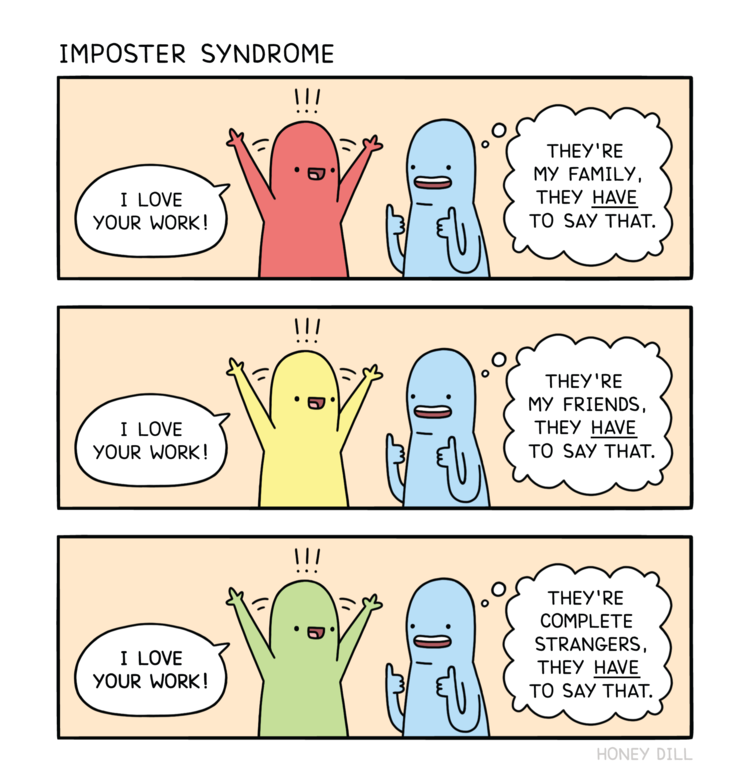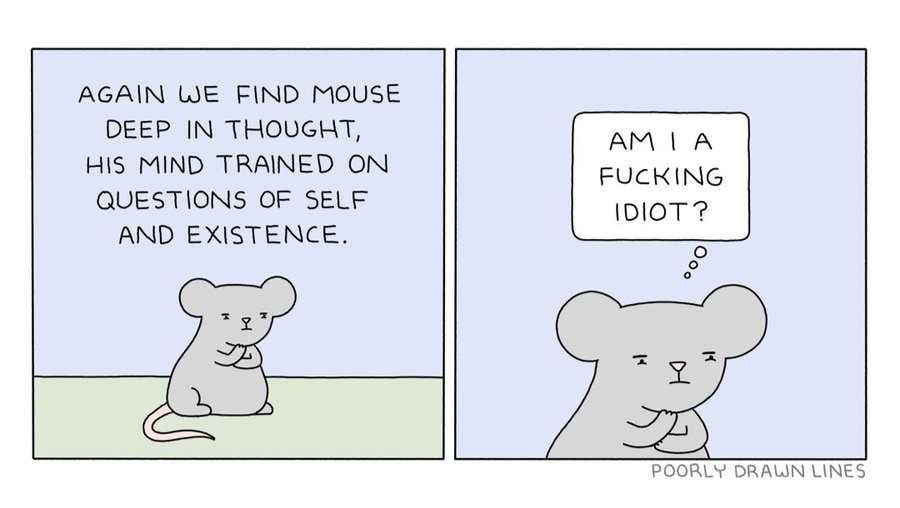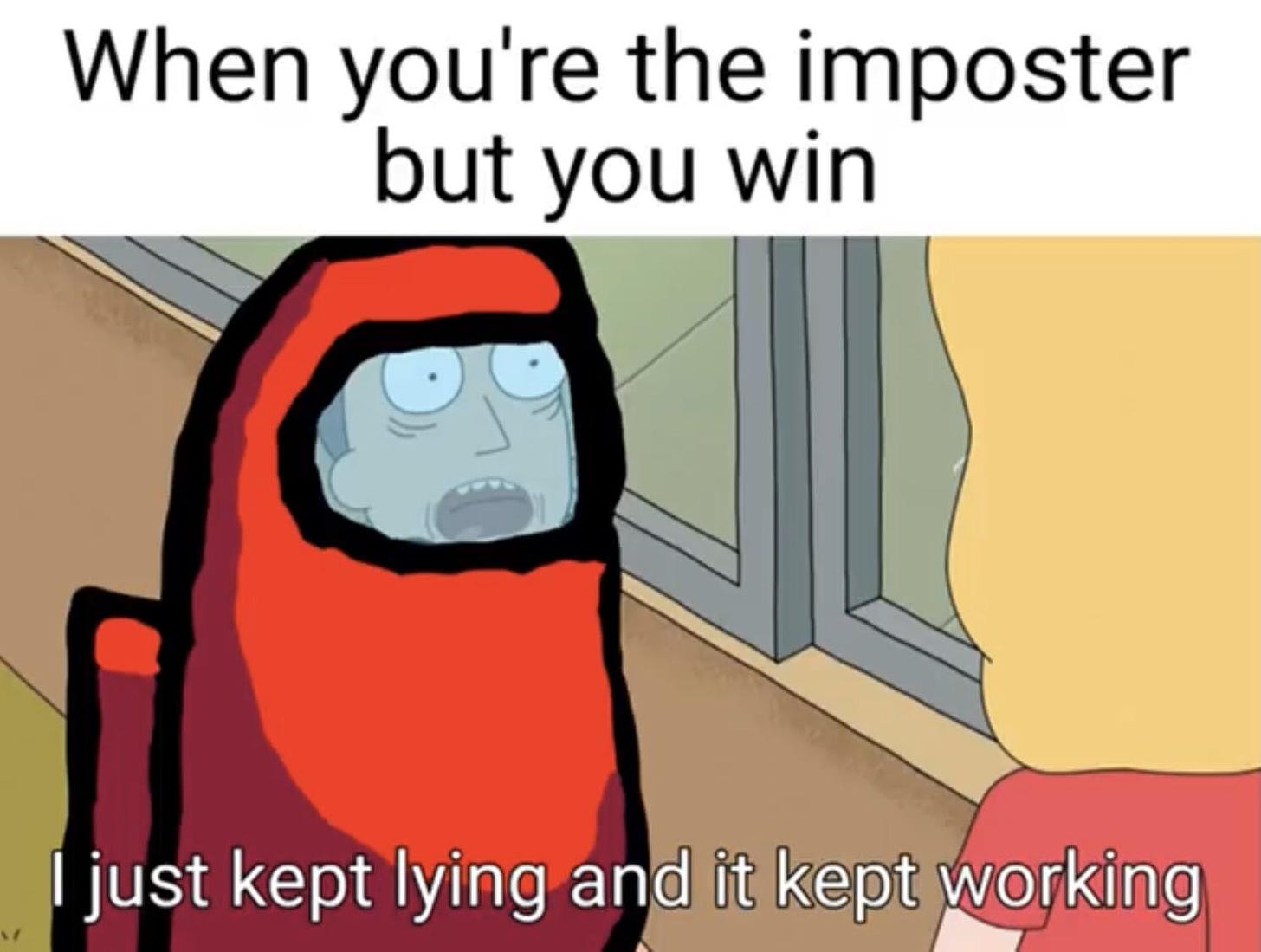This week — as with pretty much every week of my life — I’ve been thinking about impostor syndrome. Why do so many smart, talented people worry that their successes are mere flukes?
Why do so many of us worry that at any moment we’ll be revealed as unqualified charlatans? Why am I sure that every time someone compliments my work — even as a grown adult — it’s because my mom secretly paid them to do it?
Let’s put on our bravest face, hope no one finds out that we’re only pretending to be smart, and dive right into The Impostor Edition.
Red is Sus
So, what the heck is impostor syndrome and why is that red guy always getting shot out of the airlock over it?
Listen, Red was shot of the airlock for being an impostor, but to be fair he might have also felt like an impostor due to impostor syndrome. Loosely defined, impostor syndrome is doubting your abilities and feeling that your successes are more likely due to dumb luck rather than any specific skill or talent.

One of my favorite stories about impostor syndrome comes from Neil Gaiman’s “Neil Story” about talking to Neil Armstrong at a party.
“I just look at all these people, and I think, what the heck am I doing here? They’ve made amazing things. I just went where I was sent.”
And I said, “Yes. But you were the first man on the moon. I think that counts for something.”
And I felt a bit better. Because if Neil Armstrong felt like an imposter, maybe everyone did.
Okay, amazing people like Neil Armstrong and Neil Gaiman both experience impostor syndrome. So, this is just a “guy named Neil” problem, right? Turns out, nope.
It even affects guys named David.
In this interview, David Freaking Tennant talks about how he suffers from impostor syndrome. Despite numerous accolades and overwhelming praise for his work, he reveals that he feels like he’s always about to be “found out” and that:
There are no amount of good reviews that won't make you see the one bad one.
I’ll admit that reading that some amazingly talented people suffering from impostor syndrome should, in theory, make me feel better, but it almost makes me feel worse. How can we tell the difference between impostor syndrome or just being an impostor?

Simply the Best
Okay, so we now know what impostor syndrome is and that everyone has it, right? Nope. Some lucky jerks get to have the antithesis of impostor syndrome — the Dunning-Kruger effect.
People enjoying the Dunning-Kruger effect often grossly overestimate their skills and abilities in relation to their peers.
TL;DR: Smart people tend to think they’re dumb; while dumb people tend to think they’re smart. Yay.
It feels like a trap, right? Doubt yourself and you’ve got impostor syndrome — overly assume that you’re great and your face ends up in a meme about Dunning-Kruger.
To Infinity and Beyond
Okay, so what can we do? Listen, unfortunately, the Dunning-Kruger people are gonna be juuuuust fine — and if they aren’t, they won’t really know it. So, let’s talk about how the rest of us can deal with impostor syndrome.
I’ve always found this advice from Ira Glass to be super helpful. We will at times be making bad art — it doesn’t make us impostors — it means we have to keep working and making things until the art we make matches our own expectations.
Jessica Bennet and The New York Times explain impostor syndrome and give us some easy ways to overcome it.
Finally, nothing prepared me for the level of impostor syndrome I would feel as a new parent — but parenting means acting like you know stuff — even weird stuff you weren’t prepared to deal with — like the first time your four year old asks you about genitals.
Okay, that’s it for this edition! Since you all subscribe to The Short Story you’re automatically the smartest, most talented, and most attractive people in the world. That’s just how this works.
Until next time,
Ava
If you enjoy The Short Story, click the heart, leave a comment, or let me know!
I’m excited to share your work here in The Short Story or on my podcast, Stories Found. Send submissions to: avalovehanna@gmail.com
Want to hang out some more?
FOLLOW: I tweet stuff - @RobotsControlMe
READ: website - AvaLoveHanna.com
LISTEN: comedy/storytelling podcast - STORIES FOUND










This was great! And painfully relatable.
I was talking about this sort of thing with another writer the other day. It seems like there's a lot of these dumb psychological things that block creative output. Imposter syndrome, fear of judgement (for putting yourself out there), perfectionism.
It's been hard lately, but it seems to help when you can identify what's going on. "I am experiencing THESE THINGS right now." That's when I tell myself that the only way forward is to hit publish.
This was amazingly hilarious. I found your blog from the Shoutout thread.
I would like to say though, just as an aside, the real question I ask myself is, "Am I even good enough to have impostor syndrome xD"